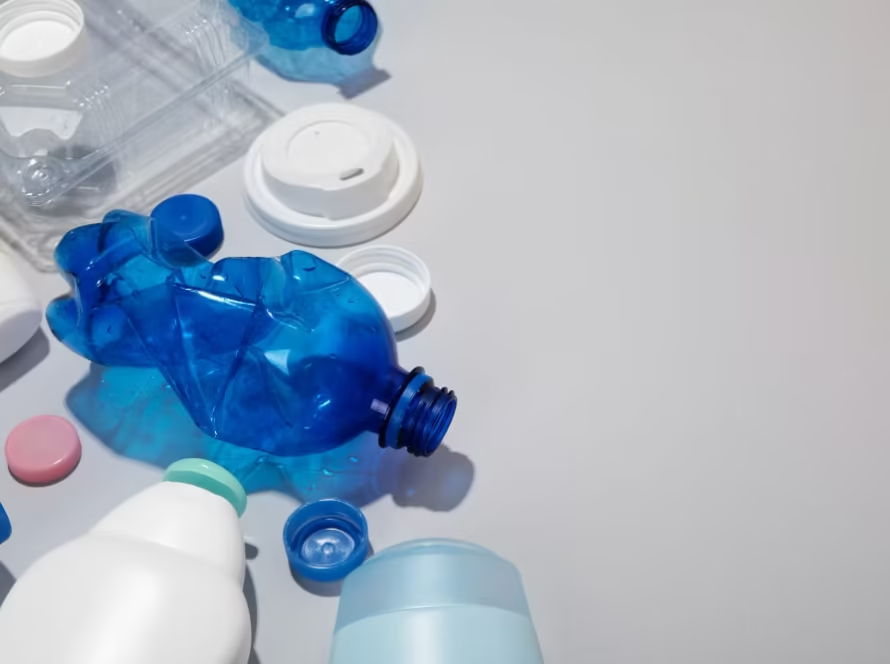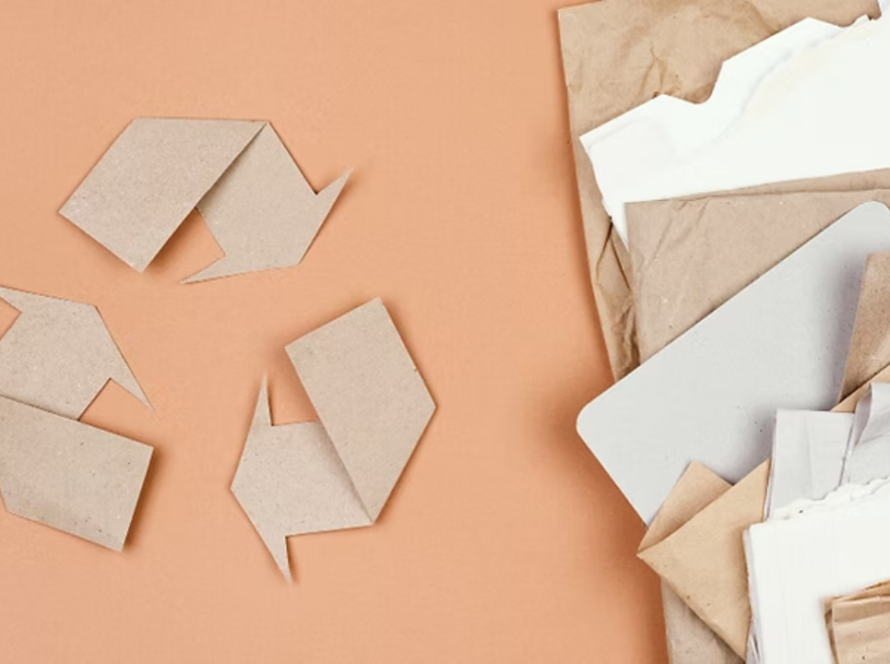Plastic waste – it’s a ubiquitous problem that has been plaguing our world for decades. It’s not just an eyesore but a real environmental and health threat. Let’s dive into the issue of plastic waste in Singapore and, specifically, how the country is tackling the problem.
Plastic pollution has consistently been one of our most significant environmental challenges. It’s estimated that since the 1950s, more than 8 billion tonnes of plastic have made its way into our environment.
Meanwhile, only about 9% of that plastic has been recycled. This means that most plastic waste ends up in landfills, oceans, and other natural environments, where decomposing takes hundreds of years.
The Most Common Plastic Waste In Singapore
Regarding plastic waste in Singapore, the situation is no different. Singapore generates about 1.6 million tonnes of waste annually, with plastic waste accounting for about 12% of that total. This may not seem like a lot, but considering Singapore’s small size, it’s a significant waste output. Furthermore, only 4% of plastic waste is recycled in Singapore, with the rest either incinerated or sent to landfills.
What are the most common plastic pollutants, you may ask? Single-use plastics, such as food containers, straws, plastic bags, cotton bud sticks, plastic bottles, and cigarette butts, are the most common. These items are used once and discarded without considering their long-term environmental impact.
Another growing concern with the increase in plastic pollution in our oceans is microplastics.
The Dangers Of Microplastics
Microplastics are small pieces of plastic less than 5mm in size. They can be found in various sources, including personal care products, clothing, and industrial waste. Unfortunately, microplastics pose a significant threat to the environment and human health.
Microplastics harm wildlife, mainly marine life, as they can be mistaken for food and ingested. This can lead to digestive problems, starvation, and even death. Additionally, microplastics can enter the food chain and potentially harm humans who consume seafood.
In addition to the harm caused to wildlife and humans, microplastics also negatively impact the environment. They can contaminate soil and water, leading to long-term ecological damage.
To avoid the release of microplastics into the environment, it is crucial to lessen the usage of disposable plastic products and dispose of plastic waste properly. By taking simple measures like reducing the consumption of plastics and correctly disposing of plastic waste, we can preserve the environment and guarantee a healthier future for everyone.
But don’t despair! Singapore has been taking steps to address the plastic waste problem. In fact, Supermarket giant NTUC FairPrice rolled out its no-plastic initiative that charged customers up to 10 cents per transaction for using plastic bags.
The pilot trial, which began in October 2019 and lasted until November 2019 resulted in reduced usage of 15.6 million plastic bags. It was well-received by the public and the funds raised went towards other environmental and community initiatives.
In addition, various programs have been launched to encourage recycling, such as the National Recycling Programme and the 3R (Reduce, Reuse, Recycle) Fund.

Plastic Waste Management In Singapore
Singapore’s 3R Approach To Waste Management
Singapore’s 3R (Reduce, Reuse, Recycle) approach to waste management is as easy as ABC’s! Well, not really, but it’s a great way to help reduce our environmental impact.
First off, let’s talk about the “Reduce” part. This is all about consuming less and making smarter choices. For example, why not invest in a reusable water bottle instead of buying bottled water daily? Or, ditch the plastic bag and bring your own tote bags.
Though these small changes don’t feel all that impactful, they can make a big difference when multiplied by millions of people.
Next up is “Reuse”. This is all about finding ways to extend the lifespan of products and materials. For example, donate old clothes to a charity or thrift store instead of throwing away old clothes. Also, repurposing old containers to store other items or using old newspapers to wrap gifts. The possibilities are endless!
Last but not least, we have “Recycle”. This is all about giving materials a second life. Singapore has a great recycling system in place, and it’s crucial to take advantage of it. Some materials that can be recycled include paper, plastic, metal, and glass. Make sure to rinse out any food or liquid residue before recycling to ensure that the materials can be processed appropriately.
Overall, Singapore’s 3R approach is a great way to reduce waste and protect the environment. We can all do our part to create a cleaner and more sustainable future by taking small steps to reduce, reuse, and recycle. So, let’s all work together and put the 3Rs into action!
National Recycling Programme And Its Effectiveness
The National Recycling Programme (NRP) in Singapore was introduced in 2001 to increase recycling rates and reduce waste sent to landfills. The NRP provides households with recycling bins and a scheduled collection service for recyclables such as paper, plastics, metal, and glass.
The effectiveness of the NRP can be seen in the steady increase in recycling rates in Singapore. In 2022, the recycling rate for overall waste in Singapore was 57%, which is a slight improvement from the previous year’s rate of 55%.
In addition to providing recycling bins and collection services, the NRP also conducts educational campaigns and outreach programmes to promote recycling and raise awareness about the importance of waste reduction. These initiatives have encouraged more people to adopt environmentally friendly habits and practices.

Recycling And Renewable Resources
Recycling and renewable resources are the superheroes of the environment, and Singapore is doing its part to keep the planet clean and green.
Recyclables In Singapore
Believe it or not, not all plastics are created equal! In Singapore, commonly recycled plastics include PET bottles, HDPE containers, and LDPE bags. Not all plastics can be recycled, so it’s important to check the recycling symbols on the packaging and dispose of them properly.
Benefits And Challenges Of Plastic Recycling
Recycling plastics can help reduce waste and conserve natural resources, but it can be challenging. One of the biggest challenges is contamination, which can happen when recyclables are mixed with non-recyclable materials. This can make the entire batch of recyclables unusable. Despite these challenges, plastic recycling is important to Singapore’s waste management efforts.
Singapore’s Efforts In Promoting Renewable Resources And Alternatives To Plastic
Singapore is committed to promoting renewable resources and finding alternatives to plastic. For example, the government has launched initiatives to promote and eco-friendly packaging. They have also invested in researching and developing renewable energy sources such as solar power and biomass. These efforts demonstrate Singapore’s dedication to creating a sustainable future for future generations.

Plastic Alternates
Recently, there has been an increasing demand for eco-friendly alternatives to plastic. Fortunately, several options are available that are better for the environment and offer numerous benefits.
-
Paper products: Paper products such as paper bags, straws, and cups are an excellent alternative to plastic.
-
Metal: Products like stainless steel water bottles and food containers are durable, long-lasting, and recyclable.
-
Bamboo: Bamboo is a fast-growing plant that can be used to make a variety of products, such as utensils, straws, and food containers. It’s biodegradable and compostable, making it an excellent alternative to plastic.
Your Part In The Plastic Problem
As a consumer, you can take many simple steps to help reduce the plastic problem. Here are some suggestions:
-
Bring your own reusable bags, water bottles, and coffee cups. This reduces the amount of single-use plastic you consume and helps reduce waste.
-
Say no to straws and other unnecessary plastic items. Ask for no straws or plastic utensils when ordering a drink or takeout.
-
Choose products with minimal packaging. Avoid products with excessive packaging and opt for biodegradable or recyclable packaging.
-
Recycle properly. Make sure to rinse out containers and check the recycling symbols to ensure you’re recycling the right materials. Improper recycling can actually contaminate the recycling stream, so it’s important to do it right.
-
Participate in beach and park cleanups. Join a community cleanup effort and help remove plastic and other litter from the environment.
These are just a few examples of the small changes we can make as consumers to reduce our plastic consumption and waste. Remember, every little bit counts, and by working together, the closer we are to a more sustainable future for all. By choosing eco-friendly alternatives to plastic, we can help reduce waste and protect the environment. So, next time you’re shopping, consider switching to more sustainable options and be part of the solution!
Conclusion On Plastic Waste In Singapore
The plastic problem is a big challenge that requires a collective effort to find solutions. We can influence a big difference by being more mindful of our waste and reducing our plastic consumption.
By bringing our own reusable bags, bottles, and coffee cups, saying no to unnecessary plastic items, choosing products with minimal packaging, and properly recycling, we can help cut down on our plastic waste.
It’s important to remember that every little action counts. So let’s all do our part and be the change the world severely needs. By being mindful of our waste and making conscious choices, we can create a more sustainable and environmentally friendly society.
Want to play your part in reducing the impact of plastic waste in Singapore? Here’s where Semula-Asia steps in. As a pioneering plastic recycling company in Singapore, we’re passionate about giving used plastics a new lease.
Our endeavours extend beyond simple recycling — we’re revolutionising the lifecycle of plastics, transforming waste into valuable, reimagined products.
But our commitment doesn’t end there. We’re actively participating in Singapore’s green initiatives and endeavouring to inspire our fellow S’poreans to adopt sustainable lifestyles. Let’s change the narrative of plastic waste together with Semula-Asia – where your contribution sparks a remarkable transformation, creating a ripple effect of extraordinary change!
What Are The Most Common Plastic Pollutants?
The most common plastic pollutants are single-use plastics. These may include products such as plastic bags, straws, and food packaging. These items are often discarded after just one use and can take hundreds of years to decompose.
What Can I Do To Help Reduce Plastic Waste?
You can reduce plastic waste by using your own reusable bags, water bottles, and saying no to straws and unnecessary plastic items, choosing products with minimal packaging, properly recycling, and participating in beach and park cleanups.
Why Is Reducing Plastic Waste Important?
Plastic waste is harmful to the environment and can negatively impact wildlife and ecosystems. Reducing plastic waste helps protect the environment and ensures a sustainable future for future generations.
How Can We Create A More Sustainable And Environmentally Friendly Society?
We can create a more sustainable and environmentally friendly society by reducing our carbon footprint through waste reduction, energy conservation, and using renewable resources. We can also promote sustainable practices and awareness and support government and private sector initiatives towards sustainability. Ultimately, it requires individual and collective action to create a better and more sustainable world.


